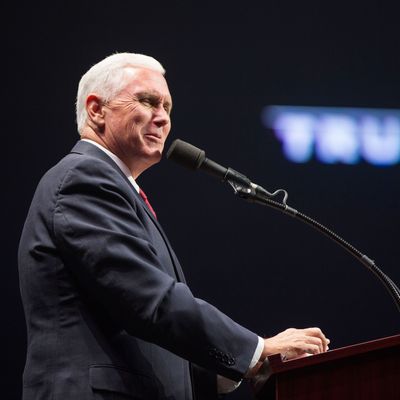
There has been a lot of speculation about how Donald Trump and congressional Republicans will deal with the private-insurance purchasing exchanges set up by the Affordable Care Act, which they have vowed repeatedly to “repeal and replace.” My colleague Jonathan Chait convincingly argues they will follow a course of “repealing” Obamacare provisions essential to the the proper functioning of exchanges but will delay the full destruction of Obamacare funding for a couple of years to cushion the impact, provide time for development of a “replacement plan,” and maybe even lure Democrats into supporting it.
This “repeal and delay” strategy makes sense for the exchanges, but it does not necessarily provide a template for how Republicans deal with the other major part of the Affordable Care Act: the federally funded Medicaid expansion whereby 16 million uninsured people have obtained health insurance from the main federal-state program providing health care for low-income people.
The long-standing GOP proposal for Medicaid, contained in the various Ryan budgets and embraced by candidate Trump, is to turn Medicaid over to the states incrementally via the expedients of either a block grant (fixed and increasingly reduced federal funding) or a per capita beneficiary cap (same goal accomplished through a slightly different method). In exchange, states would be given “flexibility” (which they already enjoy to a considerable extent, which is why Medicaid in Mississippi doesn’t look much like Medicaid in California) to run the program however they want — presumably by reducing the minimum benefits Medicaid recipients are guaranteed, or by restricting eligibility or benefit usage.
But the fact that fully 31 states — including 11 currently governed by Republicans — accepted the Medicaid expansion that the Supreme Court made optional complicates the path from here to there for Trump and Ryan. The states were tempted into the expansion by what is known as a “super-match” — an agreement that the federal government would pay virtually all the costs associated with the larger Medicaid program:
For states that implement the expansion, the federal government will finance 100% of the costs of those made newly eligible for Medicaid from 2014 to 2016 and then the federal contribution phases down to 90 percent by 2020 and beyond. States would continue to pay the traditional Medicaid match rate for increased participation among those currently eligible.
The “free money” associated with the expansion was essential in breaking down a lot of ideological resistance. And for Republicans, the Obama administration also offered waivers to let them undertake “reforms” of a sort conservatives long desired, such as co-pays and other inducements to “individual responsibility.” In effect, Republican governors had the opportunity to brag that they had gotten Uncle Sugar to pay for a reformed Medicaid program — which from the point of view of the administration was an acceptable if galling price to pay for those 16 million additional beneficiaries.
But the current situation raises a momentous question: Will some new Paul Ryan–engineered, Trump-endorsed Medicaid block grant or per capita cap factor in all that free federal money expansion states have been pocketing (and planning to pocket)? Or will federal spending be rolled back significantly? If it is, will expansion and non-expansion states be treated the same? Or will Republicans disproportionately reward those whom many conservatives thought of as traitors? Finally, how can the Republican governors in the expansion states who cut “flexibility” deals with the Obama administration pretend an offer of flexibility with a lot less money is going to make any sense for their own taxpayers?
What makes the quandary especially piquant is that one of the “traitor” governors who bought into the expansion is the vice-president-elect of the United States, Mike Pence. His federally financed Healthy Indiana 2.0 initiative, the product of a Medicaid expansion deal, had lots of conservative policy bells and whistles, including mandatory use of that great conservative pet rock, health savings accounts. But in the end, the main fiscal argument for it was that it would be irresponsible to turn down all that free federal money. So what happens when Pence’s new administration and a Republican Congress turns off the spigot, and worse yet, heads toward a federal commitment to Medicaid much smaller than the one that was in existence before Obamacare?
I don’t know the answers to these questions, but whatever they are probably represents terrible news for a lot of governors, including Republicans. At a Republican governors meeting taking place this week, the word is that the assembled state executives were “giddy” about the rich possibilities of life in the Trump Era. Just wait until they get a load of their role in Paul Ryan’s plans to pay for a big upper-end federal tax cut by dumping Medicaid on them with as small a federal contribution as possible.






























